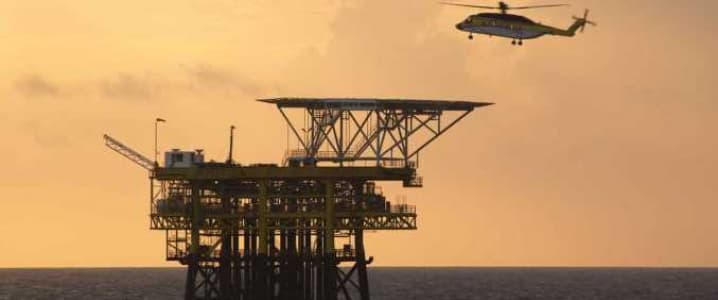With the rebound in oil prices underway and the astronomic costs stemming from the 2010 Deepwater Horizon disaster in the rear view mirror, BP is once again looking to make large investments.
In just the past few days, BP announced a rash of deals in different parts of the world, signaling the British oil major’s intent to grow after several years of shrinking. Over the course of three days, BP announced a $2.2 billion expansion of its existing facility in Abu Dhabi, as well as a nearly $1 billion investment in natural gas fields off the coast of Mauritania and Senegal. Bloomberg calculates that BP has spent $3.8 billion on acquisitions in 2016, the highest tally in four years.
BP’s CEO Bob Dudley finds himself in an unfamiliar position – the CEO of a growing company. He took the helm shortly after the Deepwater Horizon disaster, which saw nearly a dozen workers killed and nearly 5 million barrels of oil spilled into the Gulf of Mexico. Since then, he has been cutting costs and selling off assets in order to pay an army of lawyers and court fees. Ultimately, years of litigation and fines cost BP more than $50 billion, and it is much smaller company than it used to be.
The shrinking of BP occurred at a time when oil prices traded above $100 per barrel. But the crash of oil prices in 2014 meant that even with the costs of the 2010 disaster mostly accounted for, BP had to undertake a new round of cuts.
Now, for the first time in more than a half decade, BP will expand investments around the globe. “It’s time for BP to start growing,” Dudley told Bloomberg TV. “We’ve walked through so many difficulties in the U.S. that I think the company now is well-positioned for growth.” Related: These Nations Lead The Renewables Revolution
The British major has been on a bit of spending spree lately. The Abu Dhabi investment will allow the company to increase production by 160,000 barrels per day to a project that already produces 95,000 bpd. Off the coast of Mauritania and Senegal, BP will spend $916 million and become the operator of a project that will produce gas that could ultimately be exported, adding West Africa to a growing number of regions supplying the global gas market. BP will work with Kosmos Energy, from which it acquired stakes in the project. Bob Dudley said that he believes the project along with the support of the Mauritanian and Senegalese governments “brings together all the elements needed to create a new LNG hub in Africa.”
The latest deals come after a handful of other high-profile spending decisions. BP just purchased a 10 percent stake in Eni’s Zohr gas field off the coast of Egypt, the largest discovery ever recorded in the Mediterranean. Related: Could Tillerson Open Up The Russian Arctic For Exxon Again?
Also, shortly after the OPEC deal, BP announced that it was moving forward with phase 2 of its Mad Dog prospect, a $9 billion offshore drilling project in the Gulf of Mexico. Back in July the company gave the greenlight to expand its Tangguh LNG export facility in Indonesia, a move that could cost $8 billion.
Several of the moves have one thing in common: natural gas. BP’s investments in West Africa, offshore Egypt, and Indonesia are all long-term bets on natural gas. The strategy is similar to Royal Dutch Shell, with its more than $50 billion takeover of BG Group, a company that had huge natural gas assets in Australia and East Africa. BP and Shell are diversifying into gas, a strategy that assumes the world will depend less on coal and more on gas over the decades to come.
Even as BP steps up spending on a wave of new drilling, the company expects to be cash flow neutral next year if oil prices average $50 to $55 per barrel. In fact, much of the oil and gas industry is on sounder financial footing than at any time in the past few years. The IEA noted in its December Oil Market Report that the U.S. shale industry became roughly cash flow neutral in the third quarter of 2016 for the first time ever.
With oil prices rebounding, BP and others see brighter days ahead.
By Nick Cunningham of Oilprice.com
- Traders Most Bullish On Oil Since 2014
- Expert Commentary: The Weak Spots In The Oil Price Rally
- Huge Decline In U.S. Proved Oil And Gas Reserves


















